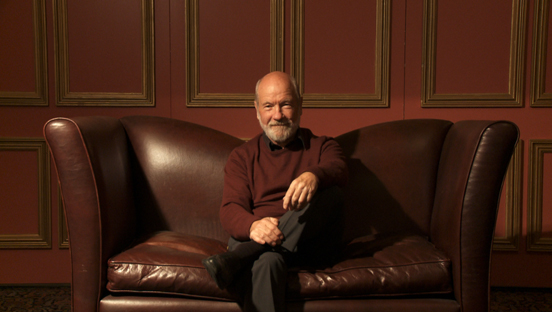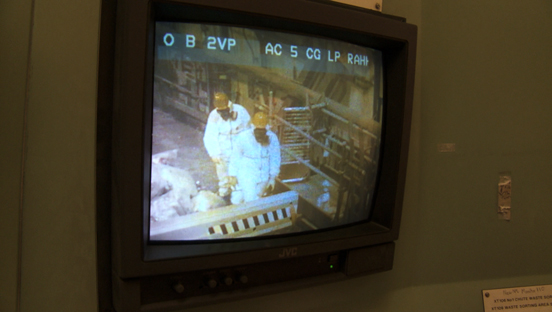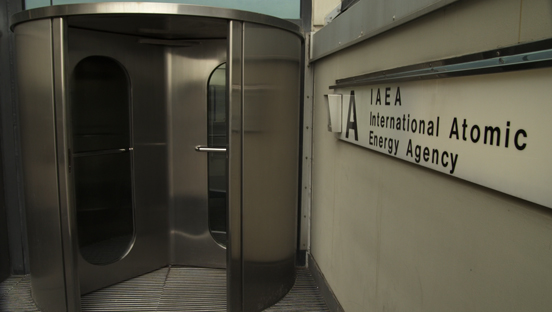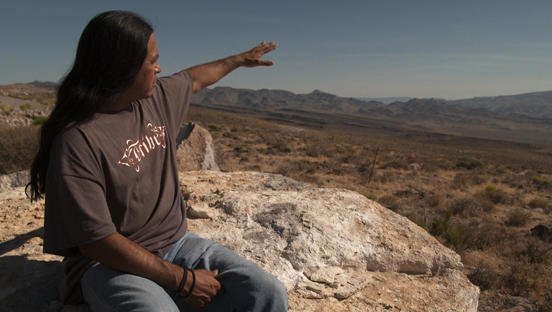Nuclear power and repositories – glossary
The Gesellschaft für Nuklear Service, GNS, operates the storage facility for fuel elements in Gorleben as well as numerous other temporary storage sites for spent fuel and radioactive waste in Germany and other countries. It is owned by a number of nuclear power plant operators in Germany. The glossary on its website contains the most important technical terms in the area of nuclear waste disposal and repositories.
http://www.endlagerung.de/language=de/6610/glossar
High-level radioactive waste
The Canadian Coalition for Nuclear Responsibility was co-founded by Canadian mathematician and physicist Gordon Edwards in 1978. It is dedicated to researching and shedding light on issues related to nuclear energy, in particular radioactive waste.
http://www.ccnr.org/#HLW
Nuclear projects – global information network
The US State of Nevada has been affected by numerous nuclear-related programmes, in particular the Nevada Test Site (today known as the Nevada National Security Site), where the US carried out over 100 above-ground and 1,000 subterranean atomic bomb tests (a moratorium was imposed in 1992). The State of Nevada does not operate any nuclear power plants and has so far managed to prevent the construction of a national high-level nuclear waste repository on the edge of the Nevada National Security Site in Yucca Mountain. The website of the State of Nevada Agency for Nuclear Projects is the most up-to-date source of information on nuclear-related issues across the globe and is updated on a daily basis.
http://www.state.nv.us/nucwaste/whatsnew.htm
The World Information Service on Energy – WISE is an international anti-nuclear network with offices in Amsterdam, Argentina, Austria, the Czech Republic, India, Japan, Russia, Slovakia, South Africa and Ukraine. WISE owns the copyright to the anti-nuclear smiling sun logo and publishes an update on events and accidents in the nuclear energy industry every fortnight.
http://www.wiseinternational.org
Repositories for high-level radioactive waste – critical issues
“Rock solid” is a scientific review commissioned by Greenpeace International. It deconstructs the myth that scientists have resolved the issue of how to dispose of high-level radioactive nuclear waste.
http://www.greenpeace.org/eu-unit/en/Publications/2010/rock-solid-a-scientific-review/
Nuclear waste repositories – an alternative concept
Based on Native American traditions, Joanna Macy developed the concept of nuclear guardianship: according to this ethic, the only reliable way to approach the nuclear problem is to closely monitor high-level radioactive nuclear waste over many generations. She believes that it is essential to pass on knowledge of how to deal with this waste from one generation to the next over many thousands of years.
http://www.joannamacy.net/nuclearguardianship.html
The International Atomic Energy Agency and high-level radioactive waste
The driving force behind the foundation of the International Atomic Energy Agency was the belief that the advent of nuclear energy for civilian purposes would be a blessing for humanity and could bring an end to its use in military programmes. The IAEO does not have the power to dictate what its member countries should do with high-level radioactive waste. It is only able to make recommendations.
http://www.iaea.org
What is nuclear waste?
The international environmental organisation Greenpeace has compiled a systematic overview of the dangers of nuclear waste.
http://www.uranstory.ch/media/uploads/article/Factsheet_Endlagerung_radioaktiver_Abfälle_def.pdf
The current status of high-level radioactive repositories:
Europe
The German Federal Office for Radiation Protection, BfS, is responsible for protecting the population from ionising and non-ionising radiation. It is tasked with constructing repositories with the aim of ensuring the safety of the population in the long term. The office’s website provides information on the activities of other European countries in this area.
http://www.bfs.de/de/endlager/standortfindung/endlagerung_international/endlagerung_europa.html
All 14 European countries that use nuclear energy are faced with the task of finding a solution to the problem of locating and constructing final repositories by 2015. This represents a major challenge for EU countries.
http://ec.europa.eu/energy/nuclear/waste_management/waste_management_en.htm
Switzerland
The Swiss Cooperative for the Disposal of Radioactive Waste, Nagra, is funded by the Swiss nuclear energy industry. It was initially responsible for resolving the problem of nuclear waste, but failed in this task. Its official role today involves providing the know-how to make this possible.
http://www.nagra.ch
The Swiss Federal Office of Energy is now responsible for coordinating the search for repository sites in Switzerland and is faced with the urgent challenge of solving the nuclear waste problem.
http://www.bfe.admin.ch/radioaktiveabfaelle/index.html?lang=de
Swiss research projects have focussed on two possible sites for final repositories. One project began in 1978 investigating granite rock in Grimsel. However, this rock is no longer viewed as suitable for creating final repositories in Switzerland. As a result, scientists are now also conducting research on clay in Mont Terri. Many believe that the rock holds great potential for the long-term containment of radioactive waste.
http://www.grimsel.com
http://www.mont-terri.ch
The left-leaning Swiss newspaper Wochenzeitung has provided a critical voice on nuclear policy and the search for final repositories for many decades.
http://www.woz.ch/d/atompolitik-und-strahlenschutz
The Swiss Energy Foundation has kept a critical eye on the search for final repositories in Switzerland since the end of the 1970s.
http://www.energiestiftung.ch/energiethemen/atomenergie/atommuell/
Numerous civic movements have tirelessly campaigned against plans for repositories in Switzerland.
http://www.nwa-schweiz.ch/
http://www.klar-schweiz.com/cms/
http://vorort.bund.net/suedlicher-oberrhein/atommuell-benken.html
Germany
In 2008 the Minister for the Environment in the governing coalition of the Social Democratic Party and The Greens convened the Final Repository Symposium in Berlin. It aimed to bring together the nuclear power industry and the anti-nuclear movement in an attempt to resolve the deadlock. It failed to achieve this goal.
http://www.endlagersymposium.de/
In 2013 environmental associations in Germany organised the Nuclear Waste Conference in Kassel. Its starting point was a comprehensive review of the nuclear waste situation in Germany. The conference aimed to stimulate a lively debate on how to deal with nuclear waste in the future.
www.atommuellkonferenz.de
The Lüchow-Dannenberg Citizens’ Initiative has fought against the German government’s plans ever since Gorleben was designated a “nuclear disposal centre” in March 1977. Over the course of their campaign they have gained extensive knowledge in this field.
http://www.bi-luechow-dannenberg.de
BUND is the German branch of the environmental organisation Friends of the Earth, which has offices in 76 countries and over two million members and supporters. In Switzerland, the organisation is called Pro Natura and in Austria, Global 2000. It takes a critical stance on the use of nuclear power.
http://www.bund.net/themen_und_projekte/atomkraft/
Atomhaftpflicht (Nuclear Liability) is a cross-party initiative in Germany. It aims to make it mandatory for nuclear power plant operators to assume full liability for German nuclear plants and stop the industry shifting responsibility on to society.
http://www.atomhaftpflicht.de
United Kingdom
In 2003 the British government appointed the Committee on Radioactive Waste Management, CORWM, to establish what should be done in the long term with the UK’s high-level radioactive waste which is mainly stored in Sellafield by the Irish Sea.
https://www.gov.uk/government/organisations/committee-on-radioactive-waste-management
The Nuclear Waste Advisory Associates are a group of scientists in the UK who take a critical stance to the nuclear energy industry. Their goal is to minimise the risks posed by radioactive waste now and in the future.
http://www.nuclearwasteadvisory.co.uk
Britain’s Toxic Coast provides information from a critical viewpoint on the environmental damage that has been caused by the reprocessing plant in Sellafield over many decades.
http://www.toxiccoast.com
USA
Following the collapse of the project to construct a final repository in Yucca Mountain, President Obama appointed the Blue Ribbon Commission on America’s Nuclear Future 2010. The commission was tasked with preparing a report on the disposal of nuclear waste and the future of the USA’s nuclear industry. The final report was submitted in January 2012.
http://cybercemetery.unt.edu/archive/brc/20120620211605/http:/brc.gov//
Although the USA has no strategy whatsoever for the disposal of the high-level radioactive waste created by the 104 nuclear power plants it currently operates, it has joined forces with numerous countries – including Switzerland – to map out the future of nuclear energy.
http://energy.gov/node/590891/BRC_info.html
Japan
NUMO, the Nuclear Waste Management Organization of Japan has been searching for a volunteer community to host a high-level radioactive repository for over ten years, but has so far been unsuccessful.
https://www.numo.or.jp/en/
The Citizen’s Nuclear Information Centre – CNIC is a Japanese anti-nuclear scientific information centre, which was campaigning for a nuclear-free world long before the Fukushima disaster.
http://www.cnic.jp/english/
Sweden and Finland
In 2011 the Swedish nuclear waste disposal organisation SKB submitted its plans to construct a high-level radioactive waste repository to the authorities. The plans are currently under review.
http://www.skb.se/default____24417.aspx
MKG is an NGO which has critically monitored the Swedish repository programme and also questioned plans to construct a high-level repository in Finland.
http://www.mkg.se/en






